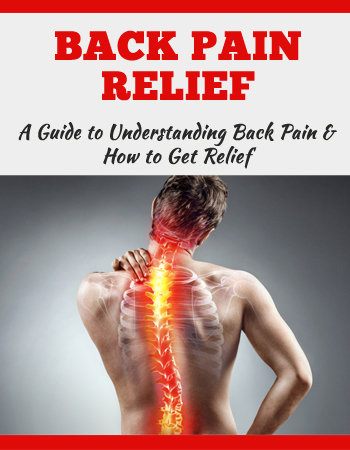Fear of intimacy can look like fear of sexual intimacy or closeness, can also look like struggling to share our thoughts or feelings, or issues letting people know who we really are, or even trouble trusting people.
And for some people, fear of intimacy looks like difficulty sharing experiences with others. That’s just to name a few ways. Overall, fear of intimacy is the fear of people getting whatever we define as too close to us.
When we struggle with intimacy, we can find ourselves sabotaging our current relationships, or isolating ourselves from starting new ones, even though we can crave closeness and new connections.
So what do we do to overcome it? Well today, I’m gonna share five tips to overcome our fear of intimacy. If you’re new here, my name’s Kati Morton, and I’m a licensed marriage and family therapist. On this channel, I talk about all things mental health related, like depression, anxiety, eating disorders, you name it.
So if you’d like to subscribe, we would love to have you. I promise you will always leave with some helpful information for you, or for someone you love. Okay, let’s jump into those five ways we can overcome our fear of intimacy.
My first tip is to better understand where this fear is coming from. And I know you’re like Kati, easier said than done, but I’ll give you some common reasons that we can struggle with intimacy. The first is if we had childhood abuse or neglect.
If someone in our life who was supposed to care for us harmed us, it’s gonna be hard for us to wanna let other people in, which rolls nicely into another really common cause, which is shame. So if we think that something’s intrinsically wrong with us, then we’re gonna believe that if we actually let people see us and know us, they’re not gonna like what they see.
And that can prevent us from allowing people in. Another is a fear of rejection, right? And kind of off of that shame, like if I start to rely on them, and start to want them around, then they’re gonna reject me and not wanna be around me.
And obviously, you could see that low self-esteem could also cause this, right? If I think poorly of who I am, and how I am presented to other people, or how other people perceive me, I’m not gonna wanna let people know the true me, because I think that it’s gonna cost me too much emotionally.
And another reason that a lot of us can struggle with fear of intimacy is perfectionism, thinking that we have to be perfect in order to be deserving of love and care. And you can kind of hopefully see how this can all track out of childhood abuse.
When we’re harmed as kids, and the people who were supposed to care for us and love us didn’t, there can be a lot of unhelpful and unhealthy side effects that we can deal with as we get older, which is why it’s really important that if we struggle with abuse as a child, we reach out to a therapist and see someone quickly, because the sooner we start healing from this, the sooner all different parts of our life are gonna improve.
My next tip is to get to know yourself. I know know this sounds stupid, ’cause people are like, “But I do know myself.” Do you ever really take time to listen to your wants and needs? Have you taken yourself out on a date? I talked about this like almost like a year ago now where I did a workshop on relationships, and one of the homework assignments was for people to take themselves on a date.
What would you wanna do? If you were dating yourself, what would you wanna tell yourself about you? And I know it sounds really weird and kind of woo woo. But we don’t often check in, and listen to ourselves.
We can get caught up in doing what other people want, or what we think other people will want. So take a minute to get to know yourself. What do you want? Maybe you’ve never thought about that before, because this can help us get to know our needs.
When we go into relationships, we can’t expect people to read our minds or know what we want and need. We’re gonna have to know that and be able to tell them. So it’s important for us to take that time to date ourselves, get to know ourselves, before we enter into any relationship.
My third tip, and if you’ve been watching me for any amount of time, you saw this one coming, that is pay attention to your self-talk. The conversation that we have about ourselves and with ourselves, you know, like that voice in your head, don’t worry, doesn’t mean you’re crazy.
Everybody has that voice. That is a really powerful conversation. That’s really the conversation that we end up having with the world around us. And so pay attention to what you’re saying to yourself about your relationships, how people might perceive you.
Are you just talking trash, saying like, no one’s gonna like you, you’re not good enough. Are we compounding that shame message? Something’s wrong with you. If you let them in, they’re not gonna like you.
You’re never gonna be enough. We have to stop that talk. We have to stop self-sabotaging. Pay attention to what you’re saying. And again, I’ve talked about this in the past too, but instead of thinking that it has to be positive, right? I have to say, oh Kati, you’re amazing.
Everyone’s gonna love you. That fake it till you make it stuff does not work. What actually works is using what are called bridge statements, meaning we’re building a bridge into a more positive space.
So instead of feeling like we have to think we’re beautiful, amazing, everyone’s gonna love us, maybe we work on thinking, I’m open to the possibility that I might be able to find one person who doesn’t think I’m a total piece of shit.
I know you’re thinking Kati, that’s not very positive, but I tell you what, it’s not as negative, and you’ll feel the difference. So pay attention to that self-talk, and let’s move it in a more positive direction.
Little by little, you got this. My fourth tip is to figure out what your layers or levels of comfort are. Like, for example, what is it okay for my colleagues to know about me? How about acquaintances? What about family? Close friends, romantic partners? Take some time to consider these different levels of relationships, and what you’re okay with people knowing, or what you think think is healthy for them to know.
Now you could work on this with your therapist, or you can do it on your own, but if you have trouble, it can be helpful to pay attention to what others in your life do in their relationships, and just gauge if you’re okay or not okay with that.
Because we often don’t consider what we’re fine with people knowing, and then we can get into situations, like I personally do this sometimes, where I like, what I’d call emotional diarrhea. Like I just like, ugh, can’t stop sharing.
I overshare, and then I regret it. And then I have like this vulnerability hangover, where I’m like, oh my God, why did I let? (grunts) Or we can shut down and not let anybody in, right? So we kind of have to gauge what those levels are.
Maybe it means we journal about this, these different levels and layers. And so we can let people in little by little, as it feels okay for us. Take some time, consider what it’s like for you. And my fifth and final tip is to do some inner child work.
Because if this issue with intimacy is coming from our childhood experiences, and that could include trauma, we’re gonna need to identify those issues. What happened, right? And we need to spend time listening and healing younger us.
And this can be done through letters that we have, or maybe we role play it out with our therapist. And I know all of this can sound really woo woo, but trust me when I tell you, it is healing and it works.
And that is why I’ve created an inner child workshop. And if any of this is interesting, or you think it could benefit you, you can join and sign up now by clicking the link at the top of the description.
Many mental health professionals believe that there are five types of intimate relationships. And those of us with a fear of intimacy can have difficulties with any one or all of them. And it can help to notice if there’s only one or two types of relationships where intimacy is an issue.
Like for example, let’s say our primary struggle is with sexual intimacy, and that can help us kind of pick and choose which tools are the best to help us overcome it. And just in case this is helpful, the five types are, like I said, sexual.
So this any relationship where there’s sexual closeness, or sensual acts are being performed. The second type of relationship is emotional. And these are close relationships where we share about our feelings, our thoughts, and we form these deep emotional connections.
And obviously, you can see some relationships can span all of these, but it can sometimes help to tease it out. The third type is intellectual. These relationships are the ones where we share and connect over ideas, and our excitement about learning new things.
Or maybe we have a shared interest in a certain intellectual topic, like being close to a friend who also loves learning about language. The next type is experiential. These are our relationships whose main form of connection is gonna come from shared experience, like a relationship that’s cultivated through travel, or maybe we always go camping with this person, for example.
And the final type of relationship is a spiritual one. Now these relationships are formed around us sharing beliefs about God or a higher power, or our purpose for being on this Earth. Overall, be patient with yourself as you work through this.
Intimacy takes time. And if we’re working through trauma, depression, or really any mental illness, it can be scary to let people in, and let them get close to us. Show yourself some compassion as you figure out where this is coming from for you, and work to overcome it.
Hopefully one of these five tips is incredibly helpful for you. I know you got this.
======================
When it comes to intimates, there are categories of items that enhance the romance, the sexy, the appeal. However there are things that many are not aware of. Taking on the old advice of “You Do Not Know What You Do Not Know” comes a great place where we can share in knowledge we have picked up and “Discovered”.
If we go to the Dictionary
characterized by or involving warm friendship or a personally close or familiar association or feeling: an intimate greeting. very private; closely personal: one’s intimate affairs.










